"U.S., EU may have to apply brakes to Kosovo promise"
Serbia refuses to give up Kosovo, even if it means giving up the EU, Newsweek reports.
Sunday, 13.01.2008.
12:52

Serbia refuses to give up Kosovo, even if it means giving up the EU, Newsweek reports. In a piece entitled, "Sorry, not interested", the magazine says that Belgrade, "it seems, has flipped the tables on the EU; for the first time, a European country outside the EU is not clamoring to be let in, but, on the contrary, making demands of its own, insisting Europe continue negotiations over Kosovo until an agreeable solution to all parties is met." "U.S., EU may have to apply brakes to Kosovo promise" The article looks at the complex domestic and international circumstances surrounding Serbia's bid to hold on to its southern province, and says that the authorities are "demanding Europe to line up 'with us or against us' on Kosovo." "A number of EU states are leaning Serbia's way," it continues, and adds, "those opposed to a unilateral Kosovo declaration of independence include Spain, Cyprus, Romania, Hungary, Slovakia and Greece." "They argue that to forcibly separate the 90 percent ethnic Albanian and largely Muslim province from an unwilling Serbia will undermine stability in the Balkans and set a dangerous precedent for other separatist movements." Newsweek says that "opposition has sprouted up" to Washington's support for Kosovo's independence, and quotes recent comments from former U.S. Navy admiral and Joint Chiefs of Staff adviser James Lyons, and former U.S. Secretary of State Lawrence Eagleburger. Lyons warned this month against setting up a "Taliban-like state in the very heart of Europe" that "has known ties to the global jihad movement and organized crime." Its independence, he noted, will lead to a "train wreck" in relations with Russia. Last week former U.S. secretary of State Lawrence Eagleburger cautioned against "carving Kosovo away from Serbia for the repercussions it would have on future global policy." The article suggests that a resolution to the crisis may be in Serbia generating "some sympathy from the West by handing over war criminals like Bosnian Serb military chief Radko Mladic to The Hague." "In return, the West might improvise a diplomatic solution of the sort that already exists in Taiwan and northern Cyprus," it quotes Andrew Denison of Transatlantic Networks, a think tank in Bonn, Germany. "We don't really allow their independence, but they can say they're independent," he says. But until then, Newsweek says, the Americans and Europeans will have to "play shrewd power brokers and apply the brakes to their stated promise of Kosovo independence—a promise many believe should never have been made." "With so much at stake, the West must ask itself whether a free Kosovo is worth further humiliating a volatile, Russia-backed Belgrade in the heart of the Balkans," the magazine says, and concludes that Serbia is "one small, poor Eastern [European] state that the EU may eventually want more than it wants the EU."
"U.S., EU may have to apply brakes to Kosovo promise"
The article looks at the complex domestic and international circumstances surrounding Serbia's bid to hold on to its southern province, and says that the authorities are "demanding Europe to line up 'with us or against us' on Kosovo.""A number of EU states are leaning Serbia's way," it continues, and adds, "those opposed to a unilateral Kosovo declaration of independence include Spain, Cyprus, Romania, Hungary, Slovakia and Greece."
"They argue that to forcibly separate the 90 percent ethnic Albanian and largely Muslim province from an unwilling Serbia will undermine stability in the Balkans and set a dangerous precedent for other separatist movements."
Newsweek says that "opposition has sprouted up" to Washington's support for Kosovo's independence, and quotes recent comments from former U.S. Navy admiral and Joint Chiefs of Staff adviser James Lyons, and former U.S. Secretary of State Lawrence Eagleburger.
Lyons warned this month against setting up a "Taliban-like state in the very heart of Europe" that "has known ties to the global jihad movement and organized crime."
Its independence, he noted, will lead to a "train wreck" in relations with Russia.
Last week former U.S. secretary of State Lawrence Eagleburger cautioned against "carving Kosovo away from Serbia for the repercussions it would have on future global policy."
The article suggests that a resolution to the crisis may be in Serbia generating "some sympathy from the West by handing over war criminals like Bosnian Serb military chief Radko Mladić to The Hague."
"In return, the West might improvise a diplomatic solution of the sort that already exists in Taiwan and northern Cyprus," it quotes Andrew Denison of Transatlantic Networks, a think tank in Bonn, Germany.
"We don't really allow their independence, but they can say they're independent," he says.
But until then, Newsweek says, the Americans and Europeans will have to "play shrewd power brokers and apply the brakes to their stated promise of Kosovo independence—a promise many believe should never have been made."
"With so much at stake, the West must ask itself whether a free Kosovo is worth further humiliating a volatile, Russia-backed Belgrade in the heart of the Balkans," the magazine says, and concludes that Serbia is "one small, poor Eastern [European] state that the EU may eventually want more than it wants the EU."












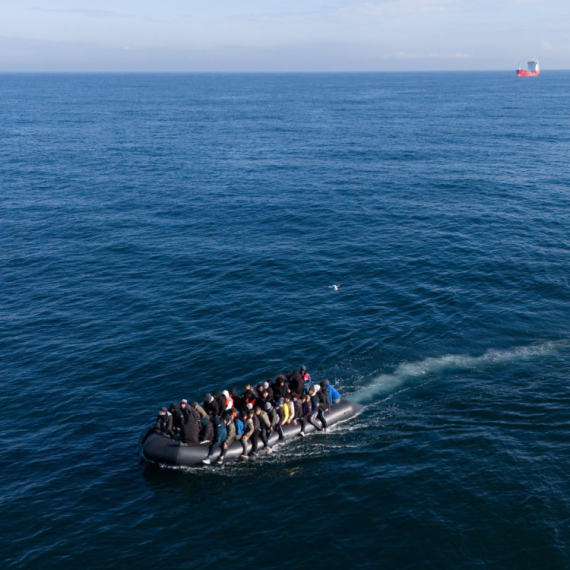



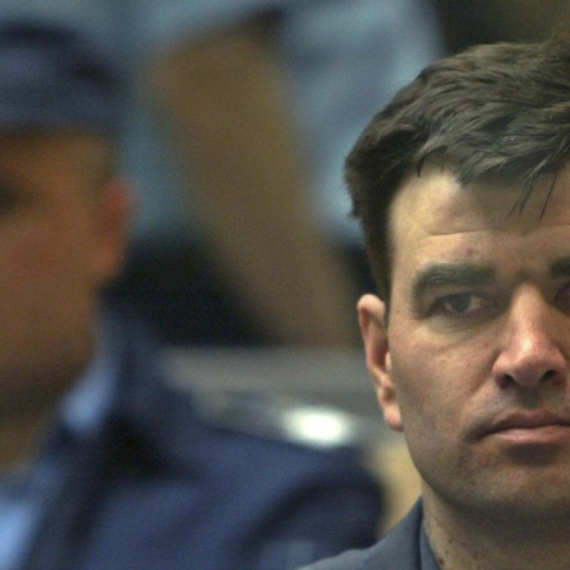
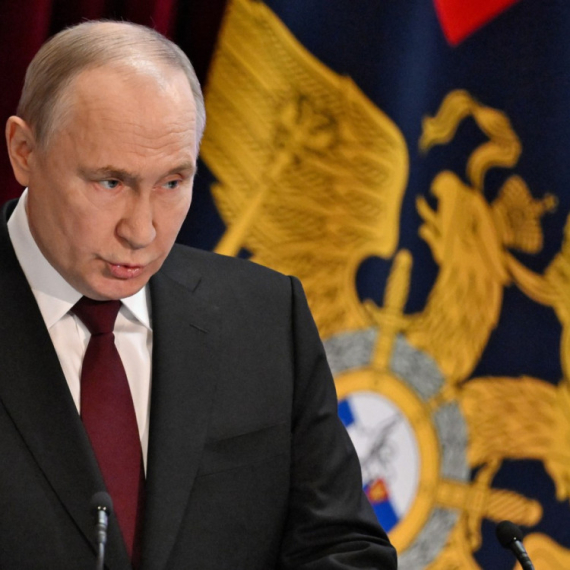




















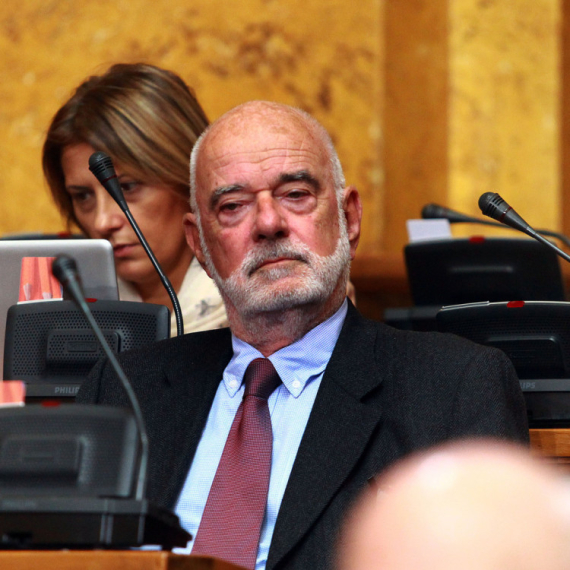














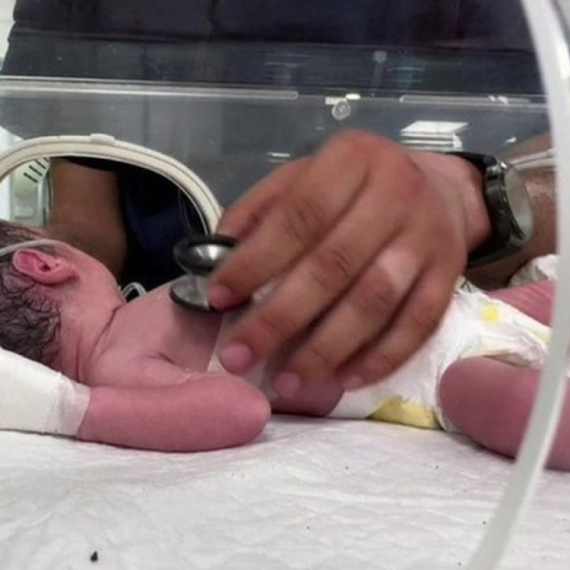




Komentari 43
Pogledaj komentare